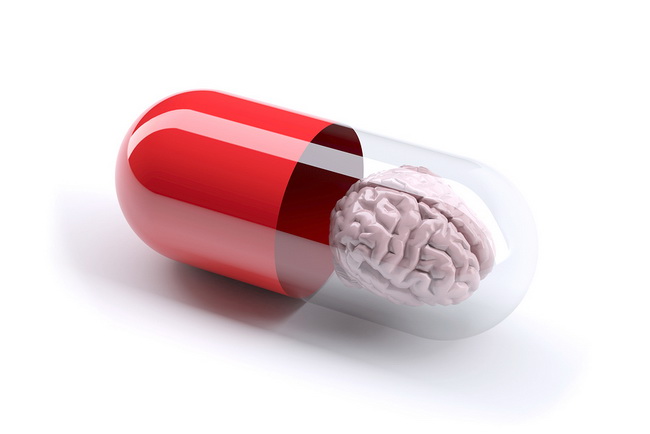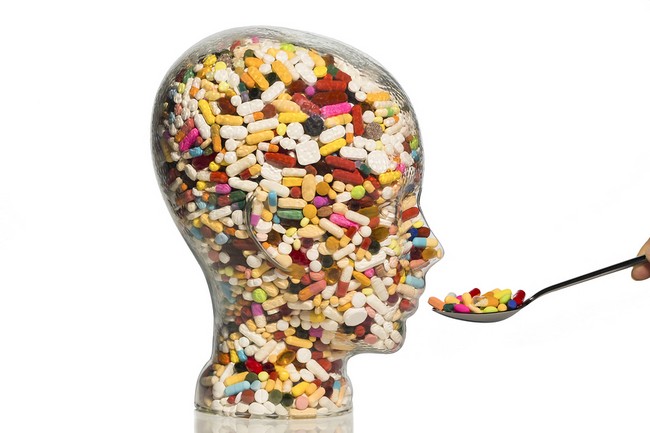- Make It Yourself Lavender Heart-Shaped Bath Bombs!
- 20 Things You Never Knew About “Down There”
- 12 Best Foods For Those Suffering From Arthritis Pain
- 12 Personal Hygiene Mistakes Almost Everyone Makes (Mom Never Told You About #4!)
- 15 Medicinal Plants And Herbs From The Cherokee People
- 12 Mind-Blowing Benefits Of Drinking Coconut Water During Pregnancy
- 12 Outstanding Winter Foods That Won’t Fatten You Up Like A Christmas Turkey
Are Your Medications Killing Your Brain? Top 25 Worst Offenders

Photo credit: bigstock.com
Most people do not realize that many drugs, both prescription and over-the-counter medications, have a tremendous effect on their memory. Every single medication carries some type of risk, and memory loss is a very common one; however, you won’t often see it mentioned.
One of the primary neurotransmitters involved with memory and learning is called acetylcholine. When our bodies are low in this neurotransmitter we become forgetful and easily confused. It’s no wonder that acetylcholine deficiencies are associated with dementia and Alzheimer’s. In fact, this is the target of Alzheimer’s drugs — to block the further breakdown of acetylcholine.
Medications that block the action of acetylcholine are called anti-cholinergic drugs. Common side effects of anti-cholinergic drugs are:
- Blurred vision
- Confusion
- Dry mouth
- Constipation
- Dizziness or light headedness
- Loss of bladder control
- Difficulty in urination
- Incoherent speech
- Hallucinations
- Brain fog
- Delirium
- Memory loss
Continue to Page 2

Photo credit: bigstock.com
There are three main groups of prescription medications that can lead to memory loss and other types of cognitive dysfunction.
1. Sleeping Aids
Prescription sleeping pills are absolutely infamous for their ability to affect the memory. The popular sleeping pill Ambien has even picked up the nickname “The amnesia drug” because of this. Those who use Ambien regularly are prone to hallucinations, night terrors, sleep walking, and even sleep driving! Ambien and other sleeping pills have shown that they have the capacity to produce states that are similar to being in a coma or passed-out drunk. Even though you might think you are “sleeping,” your brain is not really getting the recuperative REM sleep that it needs. There are plenty of natural ways to stop insomnia, so don’t rely on pills.
2. The Anti-Drugs
Anything that you are taking that starts with the word “anti,” such as antipsychotics, antihistamines, antibiotics, antidepressants, antispasmodics, and antihypertensives, will have an impact on your acetylcholine level. Acetylcholine takes part in both learning and memory, which is why we are always being encouraged to learn new things as we age — to keep our acetylcholine levels high. Low levels of acetylcholine cause dementia or dementia-like symptoms.
SEE ALSO: 7 Shocking Reasons You Should Ditch Antibiotics
3. Statin Drugs
These types of drugs are meant to lower your cholesterol levels and are, perhaps, some of the most dangerous drugs when it comes to brain health. These affect the memory so much that the FDA requires warning labels that list memory loss as a possible side effect. Although we do want to keep our LDL (bad) cholesterol levels low, statin drugs lower all cholesterol levels. Did you know that a full 25 percent of your brain is made up of cholesterol? And that your brain uses this for learning, quick thinking, and memory? Not all cholesterol is bad, but statin drugs do not take this into account.
Continue to Page 3

Photo credit: bigstock.com
There are plenty of drugs, both prescription and over-the-counter, which are notorious for having memory loss as a possible side effect. Perhaps the worst of these are:
- Benzodiazepines – Such as Xanax, Valium, Ativan, Dalmane
- Epilepsy Drugs – Such as Phenytoin or Dilantin
- Painkillers – Including codeine, morphine, heroin, and oxycodone
- Parkinson’s – Such as scopolamine, glycopyrrolate, and atropine
- Sleeping Pills – Including popular drugs such as Sonata, Lunesta, and Ambien
- Anti-hypertensive
- Beta-blockers (especially those used for glaucoma)
- Antipsychotics – Including Mellaril and Haldol
- Barbiturates – Such as phenobarbital, Nembutal, Seconal, and Amytal
- Antibiotics (quinolones)
- Antidepressants (tricyclic)
- Incontinence- Such as oxybutynin
- Lithium
- Methyldopa
- Quinidine
- Interferons
- Chemotherapy drugs
- Insulin
- Steroids
- Antihistamines
- Naproxen (Aleve)
- Zantac (for acid reflux)
- Advil PM (painkiller and sleeping aid)
- Unisom (insomnia)
- Benadryl (allergies or allergic reactions)
- Tylenol PM (painkiller and sleeping aid)
- Claritin (for allergies)
- Tagamet (antacid and reflux)
- Dramamine (motion sickness)
- Sominex (insomnia)
- Excedrin PM (painkiller and sleeping aid)
- Nytol (insomnia)
- Pepcid AC (acid reflux and antacid)
One large study found that seniors who take over-the-counter medications, such as naproxen or Benadryl, are at a much higher risk of developing dementia and/or Alzheimer’s than those who do not take these types of medications.
Long term use or large amounts were not required to increase the risks or to begin to cause side effects of memory loss. Some people experienced memory loss after a mere 60 days of use. This is very bad news for people who rely on Benadryl (diphenhydramine) for control of their allergy symptoms, insomnia, or cold symptoms.
Continue to Page 4
In fact, many over-the-counter products for the treatment of colds, coughs, sinus problems, insomnia, headaches, allergies, or pain medications contain a substance called diphenhydramine, the generic name most commonly used in Benadryl, but also are found in:
- ZzzQuil
- Dermarest
- Diabetic Tussin Night Time Cold & Flu
- Contac Day and Night Cold and Flu
- Benadryl Allergy Plus Cold
- Mucinex Fast-Max Night Time Cold & Flu
- Sudafed Sinus Nighttime Plus Pain
- FIRST Mouthwash BLM
- Bayer PM
- Alka-Seltzer PM
- Ala-Hist
- Ala-Hist D
- Invarest
- FIRST Duke’s Mouthwash
- Dytan-AT
- D-Tann AT
- Airacof
- Tussinate
- HC-Derma-Pax
- FIRST Mary’s Mouthwash
- Advil PM
- Motrin PM
- Ibuprofen PM
- FIRST BXN Mouthwash
- Doan’s PM
- Aleve PM
- Benadryl-D Children’s Allergy
- Chlor-Trimetron
- Coricidin HBP Cold and Flu
- Excedrin Tension Headache
- Primatene
- Vicks Dayquil Daytime Cold & Flu
- Alka-Seltzer Plus Cold
Continue to Page 5

Photo credit: bigstock.com
What can you do next?
If you are taking any of these prescription medications, talk to your doctor. Ask if there are any alternatives you can take that do not affect the memory. You can also ask if there are other steps you can take instead of using prescription drugs, such as herbal medications; or lifestyle changes, such as losing weight or getting more exercise.
If you must stay on the medication, lessen the load on your brain by taking proactive steps, such as focusing on a brain-healthy diet, taking supplements that support brain health, and giving your brain the best possible environment by staying mentally sharp, getting plenty of exercise to improve circulation to your brain, getting fresh air, and getting plenty of sleep.
If you regularly take over-the-counter medications for things such as allergies, acid reflux, or allergies, switching to natural remedies can give you relief of your symptoms without increasing your risk of dementia and without affecting your memory. There are plenty of articles here at Naturalon that can help you find a natural means of dealing with almost any health problem you might be experiencing.
Although no one wants to suffer from annoying cold and flu symptoms, you would be much better off using natural herbs and spices or other natural means of dealing with these common problems than risking developing dementia.
References:


































Marge Mullen
Nov 27, 2015 at 1:07 pm
Do you really think talking to your doctor who prescribes this crap will give you a ” natural alternative when they are in the back pocket of big Pharma????
Kitsy Hahn
Nov 27, 2015 at 7:08 pm
No more than “Ask your doctor if BullBleep is right for you.” (Those TV ads should be outlawed.) Am thinking 99% of regular medical doctors have no idea what “natural alternative” even means.